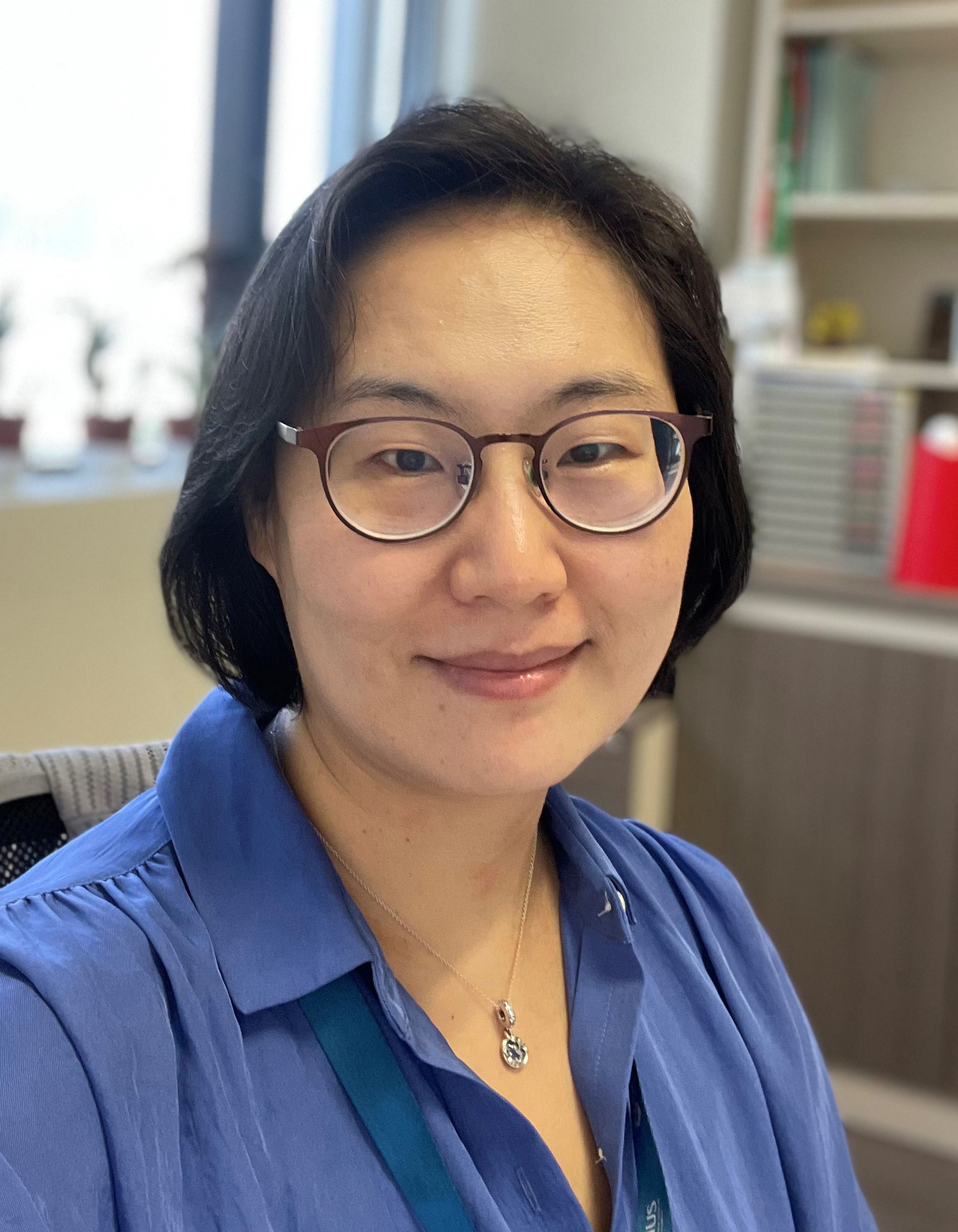
EUNYOUNG CHAE
Assistant Professor
Contact Information:
Department of Biological Sciences
National University of Singapore
14 Science Drive 4
Singapore 117543
6516 2915
6779 2486
dbsce@nus.edu.sg
Academic Qualifications
Postdoctoral training Max Planck Institute for Developmental Biology, Germany
Ph.D. Yale University, U.S.A.
B.Sc. & M.Sc. Seoul National University, South Korea
Research Areas
Plant Immunity, Hybrid Necrosis, Evolutionary Genetics, Functional Genomics
Research Interests
Adaptive traits contribute to reproductive success of an organism, and therefore the evolutionary history of adaptation is encoded in the genomes of a species. Now is the most exciting time to investigate intraspecific variation in adaptive traits, as the advent of new sequencing tools made tremendous population genomic information available in a given plant species (1001 Genomes Consortium, 2016). By exploiting systems genetics approaches, we aim to understand how plants build their immunity under constant environmental challenges, how intraspecific variability in the immunity ensures population’s fitness, and how complex network in the plant immune system play a role in finely modulating growth and defense. Given that plants in nature or in the field are not faced with one, but with a great multitude of stresses, and that individual variability in stress responses is crucial for adaptation, species-, genome-wide approaches will greatly complement current understanding on plant adaptation, most of which stemmed from generalized results from a single-genetic background experiments. We foresee that knowledges gained from our research can be translated to develop germplasm with optimized combinations of stress response and agronomic performance

Selected Publications
-
Tran DTN, Chung EH, Habring-Müller A, Demar M, Schwab R, Dangl JL, Weigel D*, Chae E*. (2017) Activation of a plant NLR complex through heteromeric association with an autoimmune risk variant of another NLR. Current Biology 2017 Apr; 27(8):1148-1160 (PMID: 28416116). * co-corresponding authors
This paper was selected for the “dispatch” section of the journal, Current Biology 2017 May;27(9):R361-R363 Plant Autoimmunity: When Good Things Go Bad. -
Karasov T, Chae E, Herman J, Bergelson J (2017). Mechanisms to mitigate the trade-off between growth and defense. Plant Cell 2017 Apr;29 (4):666-680 (PMID: 28320784).
-
Rowan BA, Seymour DK, Chae E, Lundberg D, Weigel D. (2017) Methods for genotyping by sequencing. a book chapter in Methods in Molecular Biology, 1492:221-242 (PMID: 27822868).
-
Seymour DK*, Chae E*, Grimm DG*, Martín Pizarro C, Habring-Müller A, Vasseur F, Rakitsch B, Borgwardt K, Koenig D, Weigel D. (2016). Genetic architecture of nonadditive inheritance in Arabidopsis thaliana hybrids. Proc Natl Acad Sci U S A. 2016 Nov 15;113(46):E7317-E7326 (PMID: 27803326). * co-first authors
-
1001 Genomes Consortium
1135 genomes reveal the global pattern of polymorphism in Arabidopsis thaliana. Cell 2016 Jul 14;166(2):481-91 (PMID: 27293186). -
Chae E, Tran DTN, Weigel D. (2016). Cooperation and conflict in the plant immune system. PLoS Pathogens 2016 Mar 17;12(3):e1005452 (PMID: 26986469).
-
Chae E, Bomblies K, Kim ST, Karelina D, Zaidem M, Ossowski S, Martín Pizarro C, Laitinen RA, Rowan BA, Tenenboim H, Lechner S, Demar M, Habring-Müller A, Lanz C, Rätsch G, Weigel D. (2014). Species-wide genetic incompatibility analysis identifies immune genes as hot spots of deleterious epistasis. Cell 2014 Dec 4;159(6):1341-51 (PMID: 25467443). This paper was selected for the “preview” section of the journal, Cell 2014 Dec 4; 159(6): 1247-9 Speciation via Autoimmunity: A Dangerous Mix.This paper was ranked at Faculty of 1000 Biology: http://f1000.com/prime/725255184
